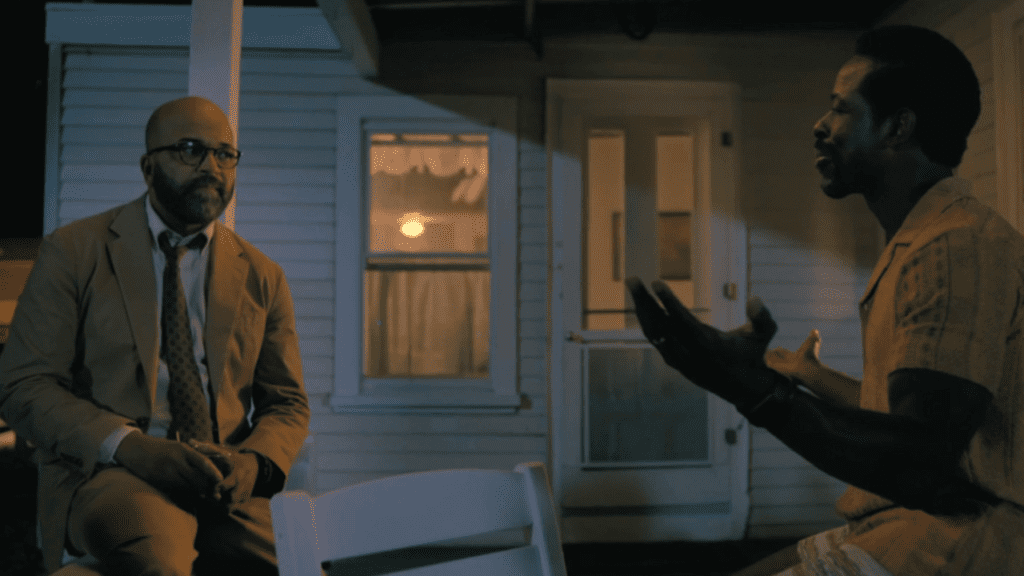If you’re anything like me—a 25-year-old who’s been writing about movies, shows, and pop culture for five years straight—you know how rare it is to come across a film that blends sharp humor, biting social commentary, and powerful performances with such ease. ‘American Fiction’ is one of those gems. It doesn’t just entertain—it makes you think, it challenges norms, and most importantly, it gets under your skin in the best way possible.
From the moment I saw the trailer, I had a feeling this movie would hit differently. And after watching it? I can confidently say American Fiction is one of the smartest, most relevant satires to come out of Hollywood in years. It’s not only hilarious and biting, but deeply layered in its take on race, identity, and how the Black experience is often commodified by the mainstream.
So if you’re still on the fence about watching it or just want to know what makes this movie a must-watch, stick around—I’ve got a lot to say.
Plot Overview: A Satire That Speaks Truth

Directed by Cord Jefferson in his feature debut, American Fiction is based on the novel Erasure by Percival Everett. It follows Thelonious “Monk” Ellison, played brilliantly by Jeffrey Wright, a frustrated Black author and academic who’s tired of the publishing industry’s narrow expectations of Black writers.
Monk’s novels—intellectual and genre-defying—are constantly dismissed as “not Black enough.” In an ironic act of protest, he writes a stereotypical, over-the-top novel full of clichés under a fake name. To his shock and horror, it becomes a massive hit.
It’s the kind of premise that could easily spiral into something cartoonish or preachy, but Jefferson keeps it grounded, real, and wickedly funny.
The movie takes aim at not just racism in the publishing industry, but the broader cultural obsession with trauma as the only lens through which Black lives are understood. And yet, it never loses its sense of humor or heart. It’s a satire, yes—but it’s also deeply human.
Jeffrey Wright: The Heart and Soul of the Film

Let me just say this upfront—Jeffrey Wright deserves an Oscar for this role. Seriously. I’ve seen him in everything from Westworld to The Batman, but this might just be his most nuanced and powerful performance yet.
Wright plays Monk with a perfect blend of dry wit, simmering frustration, and quiet vulnerability. He’s the kind of character who’s both incredibly smart and deeply conflicted. As a writer, he wants to create art that matters. But as a Black man in America, he keeps getting boxed in—pigeonholed by an industry that only wants to hear one kind of story.
There’s a scene where Monk confronts a bookstore employee about his novel being shelved in the “African-American” section. It’s subtle, but the tension is real. He doesn’t want to be categorized—he just wants to be read as a writer, not a “Black writer.” And that, right there, is the core of what American Fiction is trying to say.
Cord Jefferson’s Direction: A Confident Debut
Cord Jefferson might be new to directing films, but he’s no rookie when it comes to storytelling. His past work on shows like Watchmen, The Good Place, and Master of None shows a deep understanding of tone and character. But with American Fiction, he truly steps into his own.
This is a confident, layered debut. Jefferson doesn’t use flashy camera tricks or unnecessary drama. Instead, he lets the story breathe. The satire is sharp, but it never overwhelms the emotional arcs. The family subplot, in particular, adds depth and weight to Monk’s journey—reminding us that behind every artist, there’s a real person dealing with real life.
One of my favorite touches? The meta-moments, where Monk’s fictional characters come to life, debating and influencing his decisions. It’s done cleverly and adds a fun, surreal edge without feeling gimmicky.
Supporting Cast: No Weak Links

While Jeffrey Wright anchors the film, the supporting cast deserves serious praise too.
Sterling K. Brown plays Monk’s brother Cliff, a man dealing with his own inner turmoil and recent identity shift. Brown brings humor and pain to the role, creating a dynamic between the brothers that feels raw and real. Their relationship adds another layer of complexity to the story—about family, expectations, and how we present ourselves to the world.
Then there’s Erica Alexander as Coraline, Monk’s love interest. Her performance is warm, grounded, and refreshingly authentic. Their relationship doesn’t feel forced or overly romanticized—it’s messy, grown-up, and deeply human.
Issa Rae also pops up in a brief but memorable role, playing a bestselling author who represents the kind of storytelling Monk despises. Their back-and-forth scenes are electric, filled with tension, respect, and conflicting perspectives on race and authorship.
Themes That Stick With You
As someone who’s been blogging about movies for half a decade, I’ve seen my fair share of “socially conscious” films. Some hit, some miss. But American Fiction hits hard because it doesn’t preach—it provokes.
The film digs into:
- Racial commodification: How society profits from Black pain while ignoring the full spectrum of Black life.
- Cultural stereotypes: The push to conform to what’s “expected” rather than what’s real.
- Art vs. identity: Can an artist ever escape the labels imposed on them?
- Family and legacy: Monk’s relationship with his family grounds the satire in real emotional stakes.
These aren’t new ideas, but the way American Fiction handles them feels fresh, personal, and incredibly timely.
Oscar Buzz and Industry Recognition
Let me go on record here: American Fiction deserves awards.
Jeffrey Wright should be in every Best Actor conversation. Cord Jefferson deserves serious consideration for Best Adapted Screenplay. And the film itself? Easily one of the most original and thoughtful movies of the year.
The awards scene has often favored films that look like they’re about progress (Crash, anyone?) but often miss the depth. American Fiction actually earns its stripes. It’s not just a message movie—it’s a damn good one.
Final Verdict: Should You Watch It?
Absolutely. Whether you’re into sharp satire, character-driven stories, or films that say something important without losing their soul, American Fiction delivers on all fronts.
As a movie lover, this is the kind of film I hope more people talk about. It’s smart, funny, unafraid to challenge the status quo, and anchored by one of the best performances of the year.
If you’re looking for a movie that balances intellect with emotion, wit with warmth, and satire with sincerity—American Fiction is a must-watch.
My Take as a Movie Blogger
After five years of reviewing films, I can confidently say American Fiction is one of the most rewarding viewing experiences I’ve had recently. It reminds me why I fell in love with cinema in the first place—because the best movies don’t just entertain. They challenge, inspire, and stay with you long after the credits roll.
I’ve watched hundreds of movies across genres, but this one made me pause, reflect, and smile at how cleverly it critiques the very system that greenlit it.
Cord Jefferson has announced himself as a major new voice in film. And Jeffrey Wright? He’s not just a great actor—he’s a legend in the making.
If you’re interested in reading more blogs like this, click here




